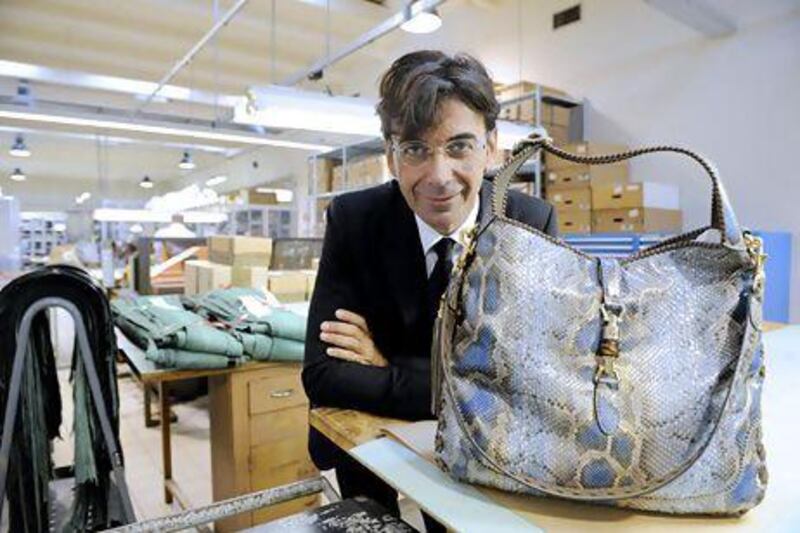Patrizio di Marco is the president and chief executive of Gucci but once upon a time he dreamt of selling soap.
"I didn't like the financial world and bonds and stocks and things like that but I liked much more the marketing side," says the sharp-suited Italian, who was in Abu Dhabi last month for the Global Champions Tour Gucci Grand Prix. "So I ended up thinking that my future was with soaps and detergents and things like that."
And it almost was.
Mr di Marco was fresh out of college with a degree in business administration and a masters in marketing and communications when Procter & Gamble offered him a job. "I thought my dream had come true," he says.
But a textile company, GFT, also offered him a position in the company's sportswear division in Japan, a place he had lived for a year while on a scholarship.
He speaks Japanese, so decided to give the job a go. "I had to right away [deal] with things I didn't understand such as sportswear - pants and jackets and things like that."
About two and a half years into Mr di Marco's stint in the late 1980s, the holding company, which manufactured clothes for brands including Armani and Valentino, decided to pull out of Japan. He wanted to stay, so sent his CV to 20 headhunters, 19 of whom did not want to know.
"Of course I still remember the names of all the people who told me no," he says gravely.
The search firm Egon Zehndersaid it was acting for a "strange character" called Patrizio Bertelli who wanted to open stores in Japan. Mr Bertelli had joined Prada as a youngster and guided the company, along with his wife Miuccia Prada, the granddaughter of the founder, to become a big name in luxury fashion.
"I got fascinated by this guy who in a very simple way would say: 'we are a €30 million [Dh143m] company and we want to become 10 times bigger in five years'. I thought this guy is totally nuts or he is totally genius."
Mr di Marco decided it was the latter, and took Mr Bertelli up on his offer, working for the company in the 90s, when it exploded as a name.
But after eight years at Prada, a family-run business, he wanted to work for a more structured company, accepting a position as second in command of Louis Vuitton America.
In 2001, just two years into the role, he received a call from Domenica De Sole, then the head of Gucci, who needed someone to fix his flagging Bottega Veneta luxury brand. He spent eight years restoring the company to its former glory before being offered the helm of Gucci in 2009. "My whole career has been based on either starting something from scratch or fixing things," he says.
But surely Gucci did not need to be fixed? He says the brand had become too commercial and reliant on its recognisable GG logo.
People who become successful, explains Mr di Marco, look to buy something to show the world they have made it.
"The following step is, that, OK, you have your closet with your Gucci, with your GG and you say now I want to have something which is better."
And the more successful you become, the higher up the luxury pyramid you climb.
"Gucci was getting towards the lower end of the pyramid," he says.
Four years in to the task, Mr di Marco believes he has made some progress in bringing the brand to the next level.
"Let's not forget that we are the second largest and most profitable brand in the luxury industry. When we are compared to other brands there is not one single person who remembers that this brand back in '93 was basically bankrupt."
Mr di Marco puts his success down to a lot of hard work but admits luck has also played its part, as if it were not from that call from GFT, his career may have followed a very different course.
"I am glad that life is strange and sometimes you have a tram passing by and you have another tram passing by and you get on the right tram, although at that point you don't know it's the right one."






